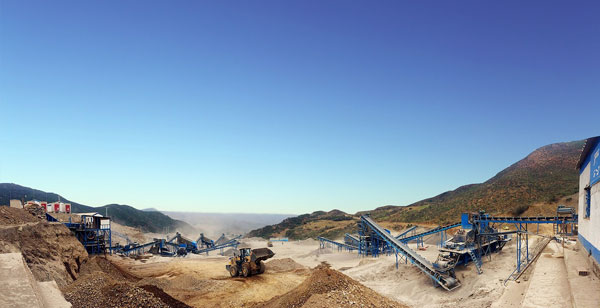Lithium mining in Chile threatens indigenous lands and water supplies

[Mechanical mine construction site. Photo Credit to Pixabay]
On April 13, 2024, protests were held in northern Chile against lithium mining in the Atacama Desert.
The protests show a growing global concern that the race to produce clean energy is often harming fragile ecosystems and violating Indigenous rights.
Many protesters were from Indigenous communities, especially the Lickanantay people, who have lived in the desert for generations.
They had put up signs of mourning, saying the mining is hurting their land and water.
Lithium is a soft metal that is very valuable because it is used in batteries for electric cars, phones, laptops, and other electronics.
As the world moves toward clean energy, there is a lot more demand for lithium.
Chile is one of the top producers of lithium in the world, with large deposits found beneath the desert floor.
To extract lithium, companies pump salty water from deep underground into large open pools.
The sun then evaporates the water, and lithium is left behind.
However, this method uses enormous amounts of water, which causes serious problems in the dry desert.
The mining is drying up wetlands and lagoons in the Atacama Desert, disrupting ecosystems and local water supplies, according to researchers at the University of Talca.
These areas are home to many species, including flamingos, which rely heavily on the water to survive.
Residents in some communities must travel great distances just to get clean water.
The land is being rapidly damaged, and Indigenous communities were not consulted before mining began, according to a complaint filed by the Council of Atacameno Peoples.
Community leaders feel that their voices are being completely ignored in decisions that affect them severely.
Companies might argue they are helping the economy by creating jobs and bringing in money, but others say these benefits are not worth the environmental damage.
Some leaders, like President Boric, say they will try to protect both the environment and the people.
However, many Indigenous groups remain skeptical about whether they can trust the government or large companies to keep their promises.
The international community is watching closely because lithium is needed for the transition to clean energy.
Electric cars and renewable energy technologies depend largely on lithium, which proves the challenge of producing this critical material without harming local populations.
Experts warn that clean energy should not come at the cost of harming nature or ignoring the rights of Indigenous people.
The protests in Chile show that it is important to find a balance between protecting the planet and respecting the people who live on the land.
As more countries increase lithium production, it will be crucial to ensure that mining is done in a fair way.
The situation in the Atacama Desert demonstrates that even green energy can have serious problems if not handled with care.

- Jayden Lee / Grade 7 Session 8
- Canyon Hills Junior

![THE HERALD STUDENT REPORTERS [US]](/assets/images/logo_student_us.png)
![THE HERALD STUDENT REPORTERS [Canada]](/assets/images/logo_student_ca.png)
